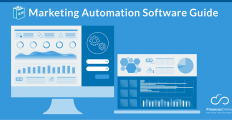
Credit: Pexels
Human activity—whether it’s business, health, or leisure—can largely be quantified, thanks to the ubiquity of data and data-driven solutions in this day and age. One of the foremost solutions comes in the form of Data-as-a-Service (DaaS) tools, providing services like cloud storage and data analytics, that have proven to be critical to today’s business landscape. In a recently released report by Technavio, the global DaaS market is expected to grow by $29.82 billion from 2020 to 2025 at a remarkable annual rate of 38.87%. What’s more, the market grew by 47.21% in 2021 alone.
A Data-Driven Landscape
Much of the market’s impressive growth is credited to the perpetually increasing use of data by all industries. In fact, 65% of global GDP will be digitized by 2022. And by 2025, over 200 zettabytes of data will have been deposited in the cloud. The massive volume of data being used calls for bigger cloud storage space and more powerful tools for data analysis and management. This has compelled businesses to heavily rely on DaaS solutions for the aforementioned purposes.
Businesses aren’t the only ones depending on DaaS solutions for cloud-based services. Individual users have also adopted cloud storage solutions in their daily routines. A report by GoodFirms reveals that 94.44% of internet users leverage Google Drive, 66.2% use Dropbox, 39.35% rely on One Drive, and 38.89% utilize iCloud. When the allotted free storage of these apps runs out, users upgrade their accounts to paid ones, which contributes to the market’s growth.
Besides the staggering growth of data, there is a secondary driver that may come as a surprise for DaaS users: blockchain technology. The tech that serves as the backbone of cryptocurrencies presents a host of use cases for DaaS solutions.
High Demand for Blockchain-as-a-Service
While traditional blockchain offers a decentralized system and immutable record-keeping, it has limited scalability and functionality. DaaS solutions like data management platforms and data analytics software enter the fray by expanding the capabilities of blockchain applications. For instance, DaaS tools furnish APIs to businesses on which blockchain applications can be designed and developed.
Moreover, users leverage Blockchain-as-a-Service (BaaS) solutions—which function as DaaS for blockchain technology—to create and manage cloud-based networks used for building applications. Aside from providing infrastructure, these tools enhance security, with some capable of detecting cyberattacks, hacking, and data breaches.
The rising popularity of BaaS solutions, especially in verticals outside currency, has pushed the demand for BaaS solutions, given that its global market’s growth far surpasses that of the DaaS market. A report released by Markets and Markets shows that the BaaS market is poised to surge from $632 million in 2020 to $11.52 billion by 2026, at an astounding annual growth rate of 62.2%.
Lack of Frameworks Hinders Data Management
A challenge that hounds the DaaS market is the lack of assets and policies to store and handle particularly large volumes of data. For many providers, the service gradually deteriorates as the applications reach their limits, and this has hampered the penetration of DaaS platforms globally. Furthermore, the solutions to this concern are tedious, time-consuming, and come with hefty costs.
However, this issue is not enough to curb the growth of the market, as it looks to sustain its momentum through the second half of this decade. After all, data drives not just businesses but also lives in today’s information age.






















Leave a comment!